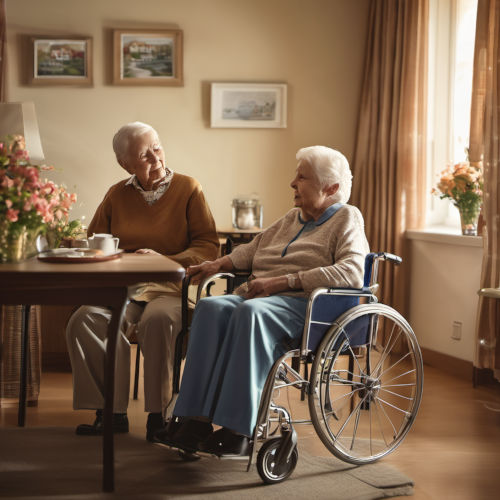
Creating a Safe Environment for Seniors
Ensuring a safe home environment for aging loved ones is essential for their well-being and peace of mind. This guide explores the process...
Posted by

Placing a loved one in a nursing home is a difficult decision. You trust that they will receive the best care possible, but sadly, nursing home abuse still occurs. Knowing the signs of abuse can help you protect your loved ones. This guide will highlight the key red flags to watch for in 2024.
Physical abuse in nursing homes involves the use of force that can cause injury, pain, or impairment. Look out for:
Example: Mrs. Thompson noticed her father had frequent bruises on his arms. When asked, he seemed nervous and quickly changed the subject. This raised her suspicion of possible physical abuse.
Emotional abuse is equally harmful and includes verbal assaults, threats, and harassment. Signs to watch for include:
Example: Mr. Patel observed that his usually cheerful mother had become withdrawn and scared. She seemed particularly anxious whenever a certain nurse was around.
Financial abuse involves the illegal or improper use of an elderly person's funds, property, or assets. Look for these signs:
Example: Mr. Thompson's daughter noticed large, unexplained withdrawals from his bank account. After investigating, she discovered that a nursing home staff member had added their name to his account and was making unauthorized transactions.
Neglect occurs when caregivers fail to provide necessary care, leading to harm. Signs of neglect include:
Example: Mr. Johnson noticed that his grandmother often wore dirty clothes and had untreated sores. The nursing home environment was also unclean, raising his concerns about neglect.
Keep detailed records of any injuries, behavioral changes, or financial discrepancies. Take photos and note dates, times, and any relevant details.
Have open, private conversations with your loved one. Encourage them to share their experiences and reassure them that they are safe to speak openly.
If you suspect abuse, report it immediately. Contact local authorities, adult protective services, or a trusted attorney who specializes in elder law.
The Member Resourcessection at Safe Secure Seniors has lots of helpful links to items like State resources for elder abuse as well as free and no cost legal resources in most states.
Ensure your loved one receives immediate medical care for any physical injuries or untreated conditions. A medical professional can also document their findings, which can be crucial for any investigations.
Before choosing a nursing home, research thoroughly. Look for reviews, ratings, and any history of complaints. Visit the facility and talk to current residents and their families if possible.
Visit your loved one regularly and at different times of the day. Regular visits can deter potential abusers and help you stay informed about your loved one's well-being.
Be an active participant in your loved one's care plan. Attend care meetings, communicate with staff, and ensure you are updated on any changes in their health or care routines
Ensuring the safety of your loved one in a nursing home requires vigilance and proactive steps. By recognizing the red flags of abuse and taking swift action, you can protect your loved one from harm. Stay informed, stay involved, and always advocate for their well-being.
By following this guide, you can help ensure that your loved one receives the care and respect they deserve in their nursing home. Stay vigilant, stay informed, and always advocate for their well-being.
Subscribers to Safe Secure Seniors have the ability to research nursing homes and other adult facilities to easily research and see violations of abuse in an easy-to-understand format.
Non-Subscribers can even test out the search function.

Ensuring a safe home environment for aging loved ones is essential for their well-being and peace of mind. This guide explores the process...
Posted by

Understanding care levels is crucial when choosing the best nursing home for your loved one. By knowing whether your family member needs...
Posted by

When comparing nursing homes, families must decide between smaller, more intimate settings and larger facilities with extensive resources....
Posted by